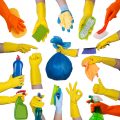What is our job as educators, if not to provide the best and richest learning environment to our students? Due to the advancement in technology, that’s finally possible. In between the first learning theories for the new age and the latest powerhouse of elearning tools, every aspect of digital education has come together to form an unstoppable network of information.

In the middle of it stands the LRS, a system that collects, records and stores learning experiences, thus transcending both distance and time. Here’s how it transforms online classrooms, and why you absolutely need one.
What Is LRS?

LRS stands for Learning Record Store, an xAPI-compliant eLearning system that is mostly used in combination with a traditional LMS, though their functionalities and purposes slightly differ.
Whether employed as an integrated or a stand-alone system, LRS enables a free, uninterrupted flow of information. It taps into all existing learning records, online and offline alike, in order to gather data.
Once recorded and stored within the system, both knowledge and meta-knowledge become accessible to anyone, anytime, anywhere.
How Does It Relate to LMS, and Why Do You Need One?
eLearning software technology is no longer a helping tool that a teacher can choose to utilize or not; given the obvious changes in learning styles that the digital age has spurred, a Learning Management System (LMS) is now a necessity. While many use it, not everyone is familiar with how it works.
Before the advent of today’s cutting-edge solutions, LMSs were connected to other eLearning modules with a set of technical standards called SCORM. Nowadays, SCORM is hugely replaced by a newer, faster and further-reaching xAPI, a protocol that offers greater flexibility and gathers way more data than its predecessor.
Unlike LMSs, all LRSs are xAPI-compliant. Not only do they have the same advantages as the protocol they’re founded upon, but they also communicate with a lot of different learning sources. Instead of being restricted to a single learning environment like LMSs are, LRSs collect information from both the offline world and the internet, including mobile applications.
What this practically means is that an LRS tracks its users throughout the studying session, making notes of all possible sources they visit during the process. At the same time, it keeps an open dialogue with other people’s learning experiences, thus offering even greater possibilities for those who use it.
Mind-Opening Benefits of Using a Learning Record Store

Of course, its users are not solely teachers and students. LRSs have found their application in various industries as well, with numerous data-driven businesses exploiting their huge potential across the world. When they don’t provide learning resources, they transfer meta-knowledge: in educational organizations and companies alike, LRSs offers an abundance of data that can be used for gauging students’ and trainees’ performance.
Let’s take a look at what benefits this guarantees, and how it can help us improve and expand our virtual classrooms.
1. Limitless Data Collection
The first and most obvious benefit of using a Learning Record Store is a richer flow of data. By making a comparison to traditional LMSs, we’ve already explained how xAPI-compliant LRSs connect to multiple learning environments, records, and experiences.
Both students and trainees are consequently given a chance to study from and consult resources and materials that weren’t accessible before. To teachers, this plenitude of information allows the same – the more knowledge they can get their hands on, the richer their eLearning modules are going to be.
2. Accessibility of Information
This forms an all-inclusive community of knowledge seekers, the one that doesn’t only enable, but also encourages a continuous exchange of information. Both learning materials and meta-knowledge are accessible and free to all who want to use them – while students can swap virtual textbooks, teachers can share valuable data about learners.
Just like LMSs, traditional classrooms rely on specific modules, thus keeping the lessons at hand pretty narrow. Unlike them, LRSs and virtual classrooms allow students to keep their learning horizons open.
With more information – even when pieces of it are contradictory or mutually exclusive – comes better understanding. Instead of exclusively learning the lesson, students are given a chance to learn principles of selection and develop critical thinking.
3. The Power of Meta-Knowledge
Learning Record Stores create a richer learning environment for teachers too. In order to improve their modules and lessons, they have to stay on top of current teaching trends and know how to adopt them in accordance with their students’ learning preferences. Needless to say, it’s those learning preferences that have to be detected and thoroughly analysed first.
For a long time before LRSs, teachers’ knowledge was limited to what they could see in class, which was fairly little. In fact, the learning that takes place in a formal environment rarely makes more than 10% of all learning endeavours, whereas the remaining 90% envelopes studying that takes place in informal environments, mainly the internet.
It’s exactly because Learning Record Stores track and record students’ behaviour both offline and online, formal and informal learning environments that teachers can gain thorough insight into their learning habits, styles, and patterns. This kind of knowledge allows them to enhance the educational value of their modules, but not only that.
4. Personalized Learning for All

Even more importantly, such an ability to pick up on students’ individual preferences enables teachers to personalize learning. A lot has been said about this teaching approach in the last few decades, but it wasn’t until eLearning tools like LRS that its enormous potential has finally been explored to a satisfying extent.
When equipped with LRSs and the infinite meta-knowledge stored within, teachers can meet unique learning requirements of individual students. Personalized learning thus ensures that each student is treated according to their abilities, just as well as that each student is allowed to reach their full potential.
Since meta-knowledge gives insight into personal weaknesses and strengths alike, teachers can easily define motivational techniques, appropriate teaching styles, and suitable tempos needed for engaging and educating each individual learner.
5. Real-Time Assistance
eLearning technologies, LRSs included, have another important advantage over traditional teaching methods – real-time communication that is not reserved solely for classrooms and consultation but is conveniently expanded to teachers’ after-work hours. Though this perk is an obvious one, educators simply don’t give it enough credit.
What this real-time communication allows is a continual, uninterrupted learning process. Whenever a student needs expert help or additional reading material, be that in between semesters or during an all-nighter, an LRS can provide it. The open source nature of this system makes everything available with a couple of clicks, whatever the time and wherever the student currently is.
6. Versatility & Flexibility
Finally, LRSs can be utilized by anyone with learning ambitions. Whatever the reason for acquiring the new knowledge might be, Learning Record Stores will suffice. This means that there’s no particular limit to their applications – for one purpose or another, they can be used in educational institutions and businesses alike.
Conclusion
If to such versatility we add flexibility of implementation, it becomes quite clear that LRSs are the most comprehensive, most empowering eLearning tools for the digital age. No LMS? No problem – you can use them with or without a Learning Management System. Either way, they keep learning environments open toward other sources and enriched with a plenitude of otherwise inaccessible information.
After all, the whole purpose of knowledge is to be used and exchanged. So far, Learning Record Stores have given us the greatest opportunity to explore this purpose – not only by making distant sources available to all but also by helping us build a highly personalized learning architecture fitting for every environment and suitable for each individual student.





























